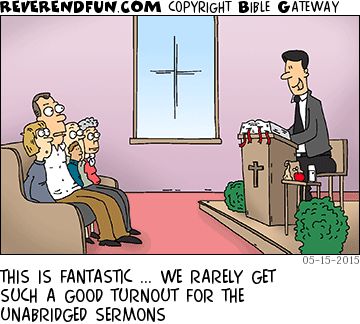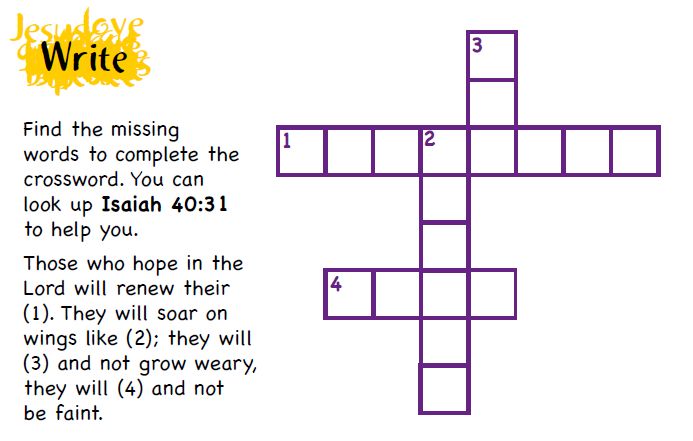
Hello everyone,
Welcome to the latest issue of our church newsletter. Our newsletter is sent out regularly to share reflections from services, Bible readings and church news to our church family. You can find previous issues on our church website here.
We would love to hear from you and are always looking for uplifting and encouraging content to share in future issues of this newsletter. If you have any ideas or content that we can share, please do email them to Louise (publicity@christchurchuxbridge.org.uk)
Opening Prayer
God of all creation, I worship you.
You know me – what I need, what I rejoice in, what I’m nervous about.
You see me – as the unique individual you created with all my little habits and characteristics.
You hear me – when I pray aloud or silently.
You meet me – here and now and I am content.
God of all creation, I worship you.
Amen.
(Taken from The Vine)
Reflection from 28 January
Readings – Deuteronomy 18: 15-22 and Mark 1: 21-28
I’m sure you know the old expression ‘the proof of the pudding is in the eating.’ An old expression meaning, of course, that the value of a thing is worked out by its outcome; the evidence, the actions. The best pudding is the one that tastes the best.
Here we are. Can you believe it? A whole month into the year 2024. A significant year, not only because it is a leap year, but also because we generally think it will be the year of a general election. It seems to me that the media is full of predictions at the moment. About the posturings of politicians, and when you add in the seemingly interminable election processes across the Atlantic in the United States, well, I don’t think that we can be blamed all that much if we’re already feeling a little jaded by it all.
Elections are a very significant moment in the life of a country with very significant implications. So, it makes you wonder why we feel a little less than enthusiastic. And I’ve come to conclude that it’s not the fact of an election that bothers me. I like deciding who to vote for and going physically to do my civic duty and exercise that hard won privilege to put my cross on that piece of paper. What bothers me are all the words that are uttered without us knowing which of that great plethora of promises will actually be put into action. I want to see results. Do you feel the same? There’s nothing new about that.

We’ve just heard from the Book of Deuteronomy, a section of the laws which the Lord gave to the people of Israel through Moses. This helps the people to be able to identify false prophets: the ones who speak in the name of the Lord, but whose words do not come true. Their promises are not followed up with action. And then we’ve heard that passage from Mark’s Gospel, where Jesus was facing the very same challenge. He went into the synagogue at Capernaum, and he taught clearly with real command and real presence. And Mark gives us the impression that the congregation there were hanging on his every word. There was clearly something novel about his teaching that wasn’t like that of the scribes. But I wonder if that would have been enough on its own. Would they have continued to listen?
Mark then tells us about this man with an unclean spirit in the synagogue crying out and creating a disturbance and with calm assurance we are told that Jesus healed him. And whether this was a form of epilepsy or another form of disturbance, we cannot be sure, but clearly something dramatic happened to the man and those witnessing it were amazed. And Mark then tells us that these people said one of two things. They either said, “What is this? A new teaching with authority? He commands even the unclean spirits, and they obey him.” Or “What is this? A new teaching? With authority he commands even the unclean spirits, and they obey him.”
Now just bear with me. Have you ever seen that little book about punctuation, called ‘Eats, Shoots and Leaves’ which has a panda on its cover. ‘Eats shoots and leaves’ is straightforward enough as a description of the pandas eating habits. But when different punctuation is used, you get “eats, shoots, and leaves’ so suddenly it sounds much more like the activities of a hungry bank robber: he eats, then he shoots and then he leaves.
Well, this passage has the same problem. The sense of it changes when the punctuation changes, and different scholars have spent years making the case for the authenticity of both or either of these versions. The issue concerns these words: ‘with authority’. Is it the teaching that gives Jesus authority, or is it Jesus’s actions in healing the man that gives him his new teaching with authority, or with authority he commands even the unclean spirits, and they obey him.
Well, I hate to disappoint you, but we’re not going to solve this particular dilemma here this morning. But what this does do is to help us to think further about the whole question of what it is that gives authority. We often demand that people should put their money where their mouth is; meaning that if leaders really believe in what they’re saying, they should be prepared to act on those words and put them into practise.
St Paul had much to say about this: “If I speak in the tongues of mortals and of angels, but I do not have love. I am a noisy gong or a clanging symbol,” he told the Corinthians.
Words are never enough. Words have to be demonstrated through love. When it comes to Jesus’s words and actions, though, we can find ourselves on dangerous ground. In two and a half weeks, we will once again begin our journey through the season of Lent, which will start with a consideration of the temptations faced by Jesus in the wilderness. Mark’s Gospel doesn’t go into detail about these temptations, but Matthew and Luke both give us very full accounts. And according to them, the second temptation consisted of Jesus being tempted to throw himself off a very high place in order to demonstrate that the angels of God would catch him and would keep him safe. It was a temptation to be a kind of wonderworker, convincing people to believe in him because of these miraculous happenings. But Jesus responded, “Do not put the Lord your God to the test.”
If having faith in God through Jesus depended on proof, then it wouldn’t be faith, it would be certainty. Faith is sometimes described as a leap from a position of doubt to a position of belief over this great chasm that cannot be explained. So that might make us ask, well, why believe in God? Some might say it’s because of history. You’ve seen what a difference Christian faith has made to so many people through so many generations, so there must be something in it. Others might say that you cannot conceive of living in a world like this and going through all the joys and difficulties of human existence if there was not something more, some bigger purpose. Others might say that they’ve looked back over the events of their lives and they’ve seen where God has guided them. But then none of these things express the certainties that can be clearly measured beyond the shadow of a doubt.

If we had faith because God had passed a test that we’d laid out for him. Then surely God would no longer be God. We would then be the ones in control, the ones calling the shots, the ones deciding where and when God would act. So let us instead just recover a little bit of humility here, and let us try to believe in God before we look for proof.
All of this has implications for our own discipleship. The Bible, and countless Christian thinkers have debated through centuries about the relationship between our faith and our works. How can we be saved from our sins? Is it through being good people, through forgiving others, through visiting when people are sick, or feeding people who are hungry; through going the second mile and giving more than is demanded of us? Well, of course, all of these were ways of life that were demonstrated by Jesus. But is God waiting for us to do enough of these good works in order for us to be reconciled to him? Will he not forgive us unless we have earned enough brownie points on Earth to give us access to heaven? And if so, how many would be enough?
Well, surely not. Jesus died for the sins of the whole world, not just for those who have performed enough good works while they lived in the world. Charles Wesley was very clear about this. You may remember the words of this hymn: ‘thy undistinguishing regard was cast on Adams fallen race; for all thou hast in Christ prepared sufficient, sovereign, saving grace.’ For all by undistinguishing regard. So everyone has the capacity to be saved from all that they have done wrong.
And if that’s the case, then why do we need to do anything at all? The Dutch Roman Catholic priest, writer and theological academic Henri Nouwen had been very successful in his teaching and his speaking and was very much in demand. But after 20 years of a life in the most important centres of academic excellence, he still felt unfulfilled and depressed. And at that time in his life, he heard about a Christian community called L’Arche, where people with and without physical and mental disabilities live together in community and are equally valued. Mutual relationships and trust in God live at the heart of this community’s ethos. Henri Nouwen made the decision to move to L’Arche Daybreak community in Toronto and his world was changed as a result.
He often took his friends from the community with him when he went out to give lectures, letting them talk too about the world from their perspective. He was going to a vulnerable place. He was emptied like Christ of all but love. And there he found again his sense of hope, fulfilment and belonging given back to him by people who had huge challenges in every way. And this for all of them, was faith in action.
Examples like that help us to realise that actions are not a way of earning God’s grace, but of responding to it. When we are faced with the wonders of the world that God has created and the care and the value that he gives to each one of us, what else can we do but take action, driven not by guilt or desperation, but by love and humility?
The proof of one particular pudding will be seen once we get to the other side of this year’s general election, whenever that will be. Jesus showed his authority both in words and actions. We do not need to demand actions from God because they are all around us and we can open our eyes and our ears and our hearts to find the actions of God at work through his spirit in this world. And what will he find in us? Faith expressed through words only, or faith lived out in every element of our lives?
May God give us the strength and courage to put our faith into action as we respond to the outpouring of love and forgiveness that God has already given to every single human being. Thanks be to God.
Revd Dr Claire Potter
Readings for 4 February
Mark 1: 29-39
Jesus Heals Many
29 As soon as they left the synagogue, they went with James and John to the home of Simon and Andrew. 30 Simon’s mother-in-law was in bed with a fever, and they immediately told Jesus about her. 31 So he went to her, took her hand and helped her up. The fever left her and she began to wait on them.
32 That evening after sunset the people brought to Jesus all the sick and demon-possessed. 33 The whole town gathered at the door, 34 and Jesus healed many who had various diseases. He also drove out many demons, but he would not let the demons speak because they knew who he was.
Jesus Prays in a Solitary Place
35 Very early in the morning, while it was still dark, Jesus got up, left the house and went off to a solitary place, where he prayed. 36 Simon and his companions went to look for him, 37 and when they found him, they exclaimed: “Everyone is looking for you!”
38 Jesus replied, “Let us go somewhere else—to the nearby villages—so I can preach there also. That is why I have come.” 39 So he traveled throughout Galilee, preaching in their synagogues and driving out demons.

Further readings from the lectionary this week are as follows:
- Isaiah 40: 21-31
- Psalm 147: 1-11, 20c
- 1 Corinthians 9: 16-23
Our worship
We meet at 11am for our Sunday services, which are also live-streamed on our Facebook page. If you wish to view our services online, you can find them at www.facebook.com/christchurchuxbridge. You do not have to be a Facebook user to watch them – our services are publicly viewable. You can also view a recent service on our church website. Our service this week will be led by URC lay preacher, Peter Knowles. You can find the order of service here.
If you are unable to join us in person or online for our Sunday services, but would like to receive a recording of them on a memory stick to watch at home, please let us know.
Forthcoming services
4 February – Peter Knowles (URC lay preacher)
11 February – Christ Church worship group – parade service
18 February – Richard Reid (Methodist local preacher)
25 February – Revd Dr Elizabeth Welch (URC minister) – Holy Communion

Dates for your diary
| 7 February | Welcome Wednesdays |
| 18 February | Annual Congregational Meeting |
| 21 February | Welcome Wednesdays |
| 6 March | Welcome Wednesdays |
| 20 March | Welcome Wednesdays |
| 3 April | Welcome Wednesdays |
| 17 April | Welcome Wednesdays |
| 19 May | Congregational Meeting |
| 8 September | Congregational Meeting |
| 24 November | Congregational Meeting |
Children’s Corner

Praying for other churches
This week we hold the following in our prayers:
- Pinner Methodist
- Ickenham URC
- St Margaret’s, Uxbridge
Closing prayer
Ever-loving God,
you sent Jesus to bring healing to the sick and the sad,
and to show us your love by seeking out those in need.
Send us, we pray, to be your eyes and feet and hands,
seeing, seeking and loving those in need. Amen.
(Taken from Roots)
